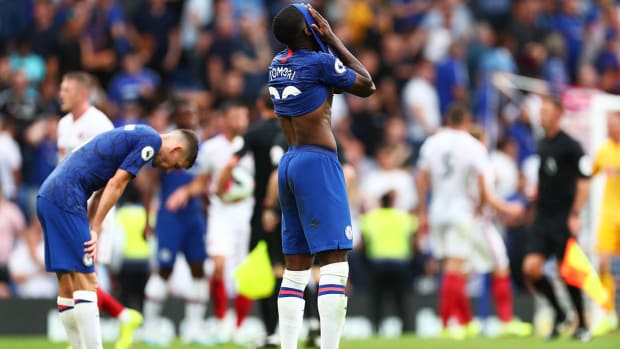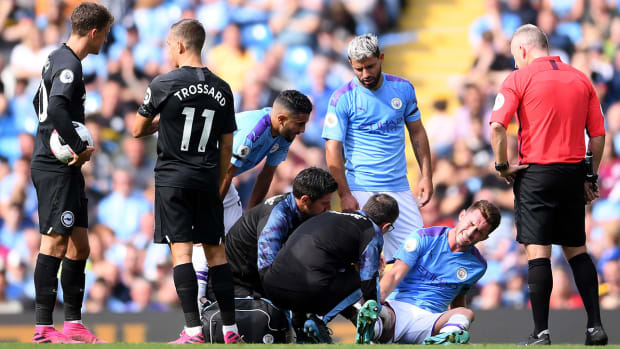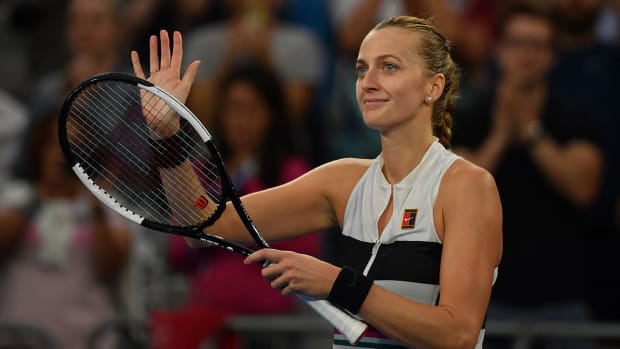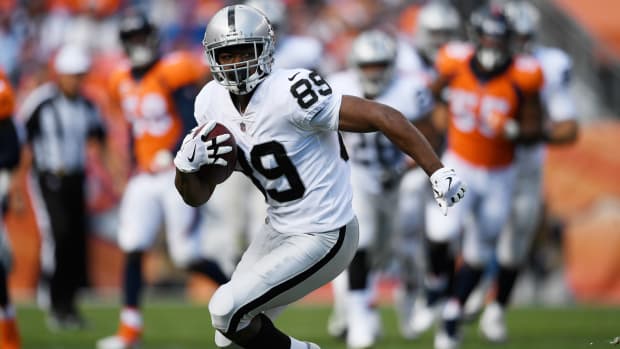In or Out? A look at the upcoming IAAF ruling on Russians
LONDON (AP) The credibility of the fight against doping in sports will be at stake Friday when track and field's world governing body decides whether to uphold or lift its ban on Russian athletes ahead of the Rio de Janeiro Olympics.
Sports geopolitics - and the key issue of individual justice vs. collective punishment - frame the debate heading into the meeting of IAAF leaders in Vienna.
Even if the IAAF decides against a full reinstatement of the Russians, there could be pressure to find a way for individual athletes who have not been implicated in doping to be allowed to compete in Rio in August.
Friday's ruling may not be the end of the story either.
The IOC has called a summit of sports leaders next Tuesday to consider the IAAF ruling, and a blanket ban on Russians athletes for Rio will likely lead to appeals and court challenges.
Some questions and answers ahead of Friday's decision:
---
Q: Why were the Russians suspended in the first place?
A: The IAAF imposed the indefinite suspension in November after a report by an independent World Anti-Doping Agency commission detailed widespread doping, corruption and cover-ups in Russian track and field. Subsequently, Russia's anti-doping agency and drug-testing lab were also suspended by WADA. The IAAF gave Russia a long list of criteria to fulfill in order to be let back in. The IAAF ruled in March that the Russians had not done enough and gave them until June 17 to comply in time for Rio.
---
Q: What's the likely outcome? Will the ban stay or go?
A: All options are open, but signs are the IAAF is unlikely to cancel the ban, at least outright - especially after the release of a devastating WADA report Wednesday that laid out how Russian athletes and government agencies have continued to obstruct and deceive drug-testers. Among other things, the report said FSB security service personnel had intimidated testers, customs services had tampered with doping sample packages, and athletes evaded doping controls - including one who tried to give a fake urine sample using a ''container inserted inside her body.''
---
Q: Haven't there been other allegations?
A: A slew of other developments have not helped Russia's cause. Russians athletes provided 22 of the 55 positive doping samples detected in IOC retests from the 2008 and 2012 Olympics. Grigory Rodchenkov, the former head of Moscow's anti-doping lab, alleged that he was involved in doping Russian athletes - including 15 medalists - ahead of the 2014 Winter Games in Sochi, and helped swap tainted urine samples for clean ones through a concealed hole in a wall at the Sochi lab. Violence by Russian soccer hooligans at the European Championship in France has further tarnished Russia's overall public image.
---
Q: What do the Russians say?
A: Russian officials insist that since the ban was imposed in November, they have cleaned house, sanctioned guilty athletes and officials, and met all the IAAF verification criteria for reinstatement. In addition, Russian Olympic officials say they have taken extra steps by deciding not to take any athletes to Rio who have had prior doping offenses. ''If the Russian team goes to the games in Rio, it will be a crystal clear team without the slightest shadow of any suspicion,'' said Gennady Alyoshin, the Russian Olympic Committee's point man on reforming the track and field federation.
---
Q: Could there be a compromise?
A: Olympic and Russian officials have argued it would be unjust to ban the entire track and field team because it would punish those athletes who have not done anything wrong. Athletes, including two-time pole vault champion Yelena Isinbayeva, could mount legal challenges if they are kept out. A potential compromise - favored among top IOC leaders - would give Russian athletes with a proven clean doping record and who have passed a certain number or recent tests the chance to compete. Critics, however, say evidence of a corrupt, state-sponsored doping system is enough to exclude the whole team in order to protect the rest of the world's clean athletes. Both viewpoints are likely to be aired Friday.
---
Q: How will the decision be made?
A: An IAAF task force, headed by Norwegian anti-doping expert Rune Andersen, will present a report to the IAAF Council and recommend whether to keep or lift the ban. The council, headed by IAAF President Sebastian Coe, will then debate the issues. The delegates could hold a vote or make a decision unanimously. The council usually has 27 members, but the Russian and Kenyan delegates are suspended from the decision, so a maximum of 25 members will decide.
---
Q: Could the IOC overrule the IAAF decision?
A: That seems unlikely. The IAAF controls the sport and the competition, including eligibility of athletes. If the IOC decided to alter the decision, it would undermine the system and Coe. ''The IOC will have to decide whether the IAAF runs track and field or whether the IOC does,'' longtime Canadian IOC member and former WADA president Dick Pound said. ''If the IOC stepped in, it would be fraught with difficulty.''
---
Q: What about banning the entire Russian Olympic team?
A: The IAAF is ruling only on the eligibility of track and field athletes. While some critics have called for Russia's entire Olympic team to be excluded, there is no indication of that happening. However, if further allegations of state-backed doping across other Russian sports are proven, the issue will arise. No country has ever been thrown out of the Olympics for doping.
---
Q: Could Russia boycott the games?
A: That would be the nuclear option. Conceivably, Russia could decide to pull out its entire Olympic team if its track athletes are banned. However, no Russian officials have publicly made that threat, and staging a boycott would jeopardize Russia's status for all future Olympics.
---
Q: Any other issues on the table Friday?
A: Yes. The council will rule on a petition by whistleblower Yulia Stepanova, a Russian middle-distance runner who herself was banned for doping in 2013. Now living in the United States, she wants to compete in the Rio Games, though not for Russia. The IAAF will also rule on whether Paralympic long jump champion Markus Rehm can compete in the Olympics. There has been no conclusive scientific findings on whether the German's carbon-fiber prosthesis gives him an unfair advantage over able-bodied athletes.
---
Stephen Wilson on Twitter: https://twitter.com/stevewilsonap. His work can be found at http://bigstory.ap.org/content/stephen-wilson




